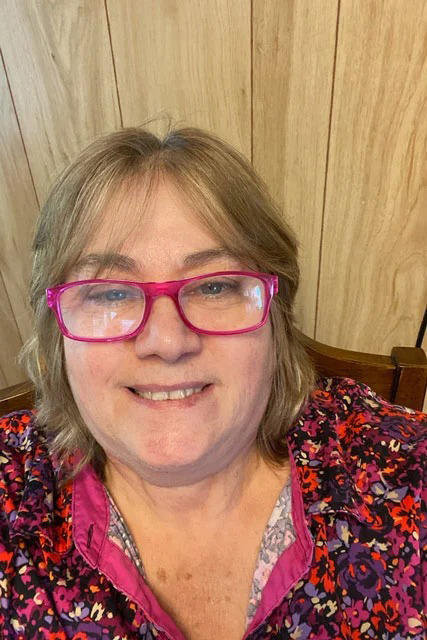
对61岁的卡伦·比斯来说,2001年9月11日的恐怖袭击依旧恍如昨日。
当时,比斯在一家距离双子塔(Twin Towers)只有几个街区的软件公司担任高管。她在上班路上准备给办公室买束花时,看到无数碎片从天而降。那天之后,她在归零地(Ground Zero,美国世贸中心废墟代称——译注)的红十字会做了一名临时志愿者,希望以这种方式来参与救援,并为人们提供帮助。直到2001年11月辞职,她一直乘坐渡轮往返于新泽西州的家和市中心的办公室之间。
“每天在渡轮上,你都会看到那里的大火。”比斯说。
现在,比斯是三个孩子的母亲和四个孩子的祖母,2008年她被诊断出患有子宫癌,2020年又查出了乳腺癌。检测显示,她并非天生易患这两种癌症。回忆起自己冒着大火做志愿者,如同置身交战区域,不停地呼吸着有害物质,她认为自己的子宫癌与“9·11”事件后的这段经历有关。
“没有人告诉我们要戴何种类型的口罩。”比斯说。“谁也不知道那栋大楼里还有什么东西,在那里的几个星期和几个月中,我们就这么呼吸着。”

世贸中心健康计划(World Trade Center Health Program)确认了几十种与“9·11”相关的疾病,并协助对其进行监测和治疗。现在,21年过去了,子宫癌仍然是唯一一种未被列入其中的癌症。
Barasch & McGarry律师事务所的合伙人萨拉·迪雷克托表示,许多与“9·11”相关的疾病,比如肺癌,与急救人员(主要是男性)身上的疾病相对应。迪雷克托代表着数千名“9·11”幸存者,其中许多人曾经患有子宫癌。
然而,子宫癌是美国女性第四常见的癌症,对黑人女性的影响尤为严重。但是,关于归零地附近有多少“9·11”急救人员和工作人员被诊断出患有子宫癌的研究尚不明确,这使得将这种癌症归类为“9·11”相关疾病变得越来越困难。
只有某一特定癌症或疾病被纳入清单,那些没有保险的人才能够获得免费治疗和医疗救助资源。
2022年5月10日,《联邦公报》(Federal Register)公布了将子宫癌纳入“9·11”相关疾病清单的指导性规则。
“世贸中心健康计划的指导性规则建议将包括子宫内膜癌在内的所有类型的子宫癌都添加到列表中,这样就可以为被证实与世贸中心相关的子宫癌患者提供治疗服务。
支持者们正焦急得等待着该规则的批准。今年8月,新泽西州众议员米基·谢里尔和纽约州众议员卡罗琳·马洛尼写了一封催促信,敦促“迅速作出决定”。
“早就应该实现人们的期盼,将子宫癌纳入68种被覆盖的癌症清单。”迪雷克托说。“我想不出还有什么能够比为‘9·11’事件中的女性提供医疗保健更有说服力,在过去20多年中,她们一直被剥夺了这项权利。”
根据美国疾病控制和预防中心(CDC)的统计,“9·11”事件后,大约有50万人——包括急救人员、普通工人和居民——吸入有毒物质的时间长达数月。迪雷克托指出,人们暴露于医学界现在确认可以干扰内分泌的化学物质中,例如苯,这些物质能够导致激素相关的癌症,比如子宫癌。
迪雷克托称:“将子宫癌纳入‘9·11’相关疾病清单是保护妇女权利的一个重大胜利。”她还指出她所服务的客户不仅承受着病痛,还因为支付医疗保健费用而面临“财务崩溃”。
“我们不希望任何人考虑文书工作或‘我在这个网站上提交的申请正确吗?’这样的问题。”迪雷克托说。“我们希望他们照顾好自己的健康,照顾好家人,做好自己的工作,过好自己的生活。”
将子宫癌纳入“9·11”相关疾病清单,受害者就可以加入世贸中心健康计划,提供她们在给定时间范围内出现在暴露区的信息,以供确认其所患疾病与“9·11”有关。一旦获得批准,她们就能够获得免费或二级医疗保健服务。
“我们知道,世贸中心健康计划的成员仍然面临着健康挑战,这些挑战与他们在‘9·11’恐怖袭击时或之后数月暴露在风险中有关。”世贸中心健康计划的负责人、美国国家职业安全与卫生研究所(National Institute for Occupational Safety and Health)的主任约翰·霍华德博士在一份声明中说。
迪雷克托强调,受有毒物质影响的工人群体更广泛,也经常被忽视。
“设立这个项目是为了向那些当时维持纽约市正常运转的人提供支持和保障,是他们让我们得以呼吸安全空气,回到曼哈顿下城区继续生活。”迪雷克托说。“如果不是他们为了学校重新开放,为了股市重开,为了员工回归办公室而付出,今天的纽约和我们的国家又会变成什么样子?”
现在,比斯的两种癌症都有所缓解,她很感激可以和她的三个孩子一起生活。她希望通过将子宫癌纳入世贸中心健康计划,让更多感觉被遗忘的女性得到她们所需要的医疗保健服务。(财富中文网)
译者:梁宇
审校:夏林
对61岁的卡伦·比斯来说,2001年9月11日的恐怖袭击依旧恍如昨日。
当时,比斯在一家距离双子塔(Twin Towers)只有几个街区的软件公司担任高管。她在上班路上准备给办公室买束花时,看到无数碎片从天而降。那天之后,她在归零地(Ground Zero,美国世贸中心废墟代称——译注)的红十字会做了一名临时志愿者,希望以这种方式来参与救援,并为人们提供帮助。直到2001年11月辞职,她一直乘坐渡轮往返于新泽西州的家和市中心的办公室之间。
“每天在渡轮上,你都会看到那里的大火。”比斯说。
现在,比斯是三个孩子的母亲和四个孩子的祖母,2008年她被诊断出患有子宫癌,2020年又查出了乳腺癌。检测显示,她并非天生易患这两种癌症。回忆起自己冒着大火做志愿者,如同置身交战区域,不停地呼吸着有害物质,她认为自己的子宫癌与“9·11”事件后的这段经历有关。
“没有人告诉我们要戴何种类型的口罩。”比斯说。“谁也不知道那栋大楼里还有什么东西,在那里的几个星期和几个月中,我们就这么呼吸着。”
世贸中心健康计划(World Trade Center Health Program)确认了几十种与“9·11”相关的疾病,并协助对其进行监测和治疗。现在,21年过去了,子宫癌仍然是唯一一种未被列入其中的癌症。
Barasch & McGarry律师事务所的合伙人萨拉·迪雷克托表示,许多与“9·11”相关的疾病,比如肺癌,与急救人员(主要是男性)身上的疾病相对应。迪雷克托代表着数千名“9·11”幸存者,其中许多人曾经患有子宫癌。
然而,子宫癌是美国女性第四常见的癌症,对黑人女性的影响尤为严重。但是,关于归零地附近有多少“9·11”急救人员和工作人员被诊断出患有子宫癌的研究尚不明确,这使得将这种癌症归类为“9·11”相关疾病变得越来越困难。
只有某一特定癌症或疾病被纳入清单,那些没有保险的人才能够获得免费治疗和医疗救助资源。
2022年5月10日,《联邦公报》(Federal Register)公布了将子宫癌纳入“9·11”相关疾病清单的指导性规则。
“世贸中心健康计划的指导性规则建议将包括子宫内膜癌在内的所有类型的子宫癌都添加到列表中,这样就可以为被证实与世贸中心相关的子宫癌患者提供治疗服务。
支持者们正焦急得等待着该规则的批准。今年8月,新泽西州众议员米基·谢里尔和纽约州众议员卡罗琳·马洛尼写了一封催促信,敦促“迅速作出决定”。
“早就应该实现人们的期盼,将子宫癌纳入68种被覆盖的癌症清单。”迪雷克托说。“我想不出还有什么能够比为‘9·11’事件中的女性提供医疗保健更有说服力,在过去20多年中,她们一直被剥夺了这项权利。”
根据美国疾病控制和预防中心(CDC)的统计,“9·11”事件后,大约有50万人——包括急救人员、普通工人和居民——吸入有毒物质的时间长达数月。迪雷克托指出,人们暴露于医学界现在确认可以干扰内分泌的化学物质中,例如苯,这些物质能够导致激素相关的癌症,比如子宫癌。
迪雷克托称:“将子宫癌纳入‘9·11’相关疾病清单是保护妇女权利的一个重大胜利。”她还指出她所服务的客户不仅承受着病痛,还因为支付医疗保健费用而面临“财务崩溃”。
“我们不希望任何人考虑文书工作或‘我在这个网站上提交的申请正确吗?’这样的问题。”迪雷克托说。“我们希望他们照顾好自己的健康,照顾好家人,做好自己的工作,过好自己的生活。”
将子宫癌纳入“9·11”相关疾病清单,受害者就可以加入世贸中心健康计划,提供她们在给定时间范围内出现在暴露区的信息,以供确认其所患疾病与“9·11”有关。一旦获得批准,她们就能够获得免费或二级医疗保健服务。
“我们知道,世贸中心健康计划的成员仍然面临着健康挑战,这些挑战与他们在‘9·11’恐怖袭击时或之后数月暴露在风险中有关。”世贸中心健康计划的负责人、美国国家职业安全与卫生研究所(National Institute for Occupational Safety and Health)的主任约翰·霍华德博士在一份声明中说。
迪雷克托强调,受有毒物质影响的工人群体更广泛,也经常被忽视。
“设立这个项目是为了向那些当时维持纽约市正常运转的人提供支持和保障,是他们让我们得以呼吸安全空气,回到曼哈顿下城区继续生活。”迪雷克托说。“如果不是他们为了学校重新开放,为了股市重开,为了员工回归办公室而付出,今天的纽约和我们的国家又会变成什么样子?”
现在,比斯的两种癌症都有所缓解,她很感激可以和她的三个孩子一起生活。她希望通过将子宫癌纳入世贸中心健康计划,让更多感觉被遗忘的女性得到她们所需要的医疗保健服务。(财富中文网)
译者:梁宇
审校:夏林
For 61-year-old Karen Biss, Sept. 11, 2001, feels like yesterday.
At the time, Biss worked as a leader at a software company a couple of blocks from the Twin Towers. She had stopped on her way to work to get a bouquet of flowers for her office when she saw debris falling from the sky. After that day, she wanted to get involved and find a way to help, so she briefly volunteered at Ground Zero with the Red Cross. She also continued to commute by ferry from her home in New Jersey to her downtown office until she left her job that November.
“Every day on that ferry, you saw that blaze,” Biss says.
Biss, now a mother of three and grandmother of four, was diagnosed with uterine cancer in 2008 and breast cancer in 2020. Testing showed she was not genetically predisposed to either cancer. She attributes her uterine cancer to 9/11, recalling her time working next to the flames, inhaling toxins in what she says looked like a war zone.
“We weren’t told to wear any kind of mask,” Biss says. “Who knows what else was in that building that we were breathing in for weeks and months.”
The World Trade Center Health Program recognizes dozens of conditions related to 9/11 and assists with their monitoring and treatment. Now, 21 years later, uterine cancer remains the only cancer that has not been recognized as one of them.
Many of the 9/11-related illnesses, like lung cancer, correspond to those experienced by first responders, who are primarily men, says Sara Director, a partner at Barasch & McGarry who represents thousands of 9/11 survivors, many of whom have dealt with uterine cancer.
Uterine cancer, however, is the fourth most common cancer in women in the U.S., and it disproportionately affects Black women. But research on how many 9/11 first responders and workers near Ground Zero were diagnosed with uterine cancer is not clear, making it increasingly hard to categorize this cancer as a 9/11 illnesses.
When a specific cancer or illness is on the list, those without insurance can qualify for free treatment and obtain resources for medical help.
The Federal Register published the proposed rule to include uterine cancer on the list of 9/11 diseases on May 10 of this year.
“The proposed rulemaking by the WTC Health Program recommends that all types of uterine cancer, including endometrial cancer, be added to the List. Adding uterine cancer to the List would allow the WTC Health Program to offer treatment services to members whose uterine cancers are certified as WTC-related.”
Advocates are waiting with bated breath for the approval. In August, Representatives Mikie Sherrill of New Jersey and Carolyn Maloney of New York penned an urgent letter requesting a “prompt decision.”
“The anticipated hopeful inclusion of uterine cancer to the list of the 68 covered cancers is long overdue,” Director says. “I can’t think what could be more persuasive than giving health care to women within the 9/11 community who have been denied this right for the last two decades.”
Roughly 500,000 people—including first responders, general workers, and residents—breathed in toxins for months following 9/11, according to the CDC. People were exposed to what the medical community now understands are endocrine-disrupting chemicals, like benzene, that can lead to hormone-related cancers, like uterine cancer, Director says.
“The addition of uterine cancer would be a major victory for women’s rights,” she says, noting that the clients she works with are not only sick but in “financial ruin” from covering their health care costs.
“We don’t want anybody thinking about paperwork, or ‘did I submit the correct application on this website?’” Director says. “We want them taking care of their health, taking care of their family, doing their jobs, living their lives.”
Once uterine cancer is added, victims enroll in the WTC Health Program, provide the information that they were present in the exposure zone during a given time frame, and confirm that they are living with a 9/11-related illness. Once approved, they can get free or secondary health care.
“We know that WTC Health Program members continue to face health challenges that stem from their exposures on or in the months after 9/11,” said John Howard, M.D., administrator of the WTC Health Program and director of the National Institute for Occupational Safety and Health, in a statement.
Director highlights the wider, often overlooked, community of workers impacted by the toxins.
“This program was set up to help provide and protect everyone…those that kept New York City running when we were told the air was safe, to go back to lower Manhattan and continue our lives,” Director says. “For the schools reopening, for the stock market reopening, for office workers going back, where would New York and really our country be today?”
Biss is now in remission with both of her cancers and feels grateful to live her life alongside her three children. She hopes that with the inclusion of uterine cancer in the WTC Health Program, more women who felt left behind can get the care they need.






